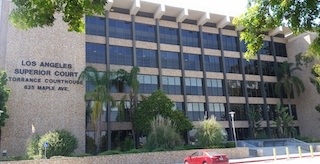As of January 1, 2020, Penal Code § 1001.83 became law, providing in subdivision (a) that “[t]he presiding judge of the superior court, or a judge designated by the presiding judge, in consultation with the presiding juvenile court judge and criminal court judges, and together with the prosecuting entity and the public defender or the contracted criminal defense office that provides the services of a public defendant, may agree in writing to establish and conduct a pretrial diversion program for primary caregivers, pursuant to the provisions of this chapter, wherein criminal proceedings are suspended without a plea of guilty for a period of not less than six months and not more than twenty-four months.”
Why This Article Matters: Primary caregiver diversion is a program that each county has the option of providing. If provided, the diversion period is no less than six months and no longer than 24 months and can include parenting classes, counseling, drug and alcohol treatment or other obligations. The program excludes serious or violent felonies and the victim cannot be the juvenile defendant has caregiving obligations for.
The diversion program may include parenting classes, counseling, mental health services and drug and alcohol treatment. Penal Code § 1001.83(b). Subdivision (c) states that “[t]he defendant may be referred to supportive services and classes in already existing diversion programs and county outpatient services.”
 Torrance Courthouse
Torrance Courthouse
However, pretrial diversion under 1001.83 is not automatically granted to individuals who meet all six requirements listed under 1001.83(d), which are:
- The defendant is a custodial parent or legal guardian of a minor under 18 years of age, presently resides in the same household as that child, presently provides care or financial support for that minor child either alone or with the assistance of other household members, and the defendant’s absence in the child’s life would be detrimental to the child;
- The defendant has been advised of and waived the right to a speedy trial and a speedy preliminary hearing [if the case is a felony];
- The defendant has been informed of and agrees to comply with the requirements of the program;
- The court [a judge or commissioner] is satisfied that the defendant will not pose an unreasonable risk of danger to public safety as defined in Penal Code § 1170.18, or to the minor in their [his or her] custody, if allowed to remain in the community. The court may consider the positions of the prosecuting agency and defense counsel, the defendant’s violence and criminal history, the recency of defendant’s criminal history, the defendant’s history of behavior towards minors, the risk of the dependent minor’s exposure to or involvement in criminal activity, the current charged offense, child welfare history involving the defendant, and any other factors that the court deems appropriate;
- The defendant is not being placed into a diversion program, pursuant to this section, for any serious felony as described in Penal Code §§ 1192.7 or 1192.8 or any violent felony as described in Penal Code § 667.5(c); and
- The defendant is not being placed into a diversion program pursuant to this section for a crime alleged to have been committed against a person for who the defendant is the primary caregiver.
If defendant is subsequently convicted of a felony or an offense “that reflects a propensity for violence,” or otherwise performs unsatisfactorily in the assigned program, the court may reinstate criminal proceedings. Penal Code § 1001.83(f).
If defendant has performed satisfactorily in diversion, at the end of the period of diversion, the court shall dismiss the defendant’s charges that were the subject of criminal proceedings at the time of the initial diversion. Penal Code § 1001.83(g).
Perhaps the biggest issue to the reader of this article is whether this program has been agreed to as provided under 1001.83(a) and is operative in the county where one is facing an open complaint. Not all counties have agreed to implement such a program.
Second, the reader most likely wishes to know whether the program is retroactive. The answer to this remains an open question. See In re Estrada (1965) 63 Cal.2d 470 and People v. Frahs (2020) 9 Cal.5th 618 (interpreting mental health diversion under 1001.36). We note that the program is designed to be a pre-trial diversion program, not a post-conviction alternative after one has been convicted or pled guilty. The language of the statute suggest it was not intended to apply to an individual who has already entered a plea bargain or been convicted. The silence on this issue is generally considered intentional and a court should not imply that such retroactivity applies.
For more information about diversion in general, please click on the following articles:
 Torrance Courthouse
Torrance Courthouse